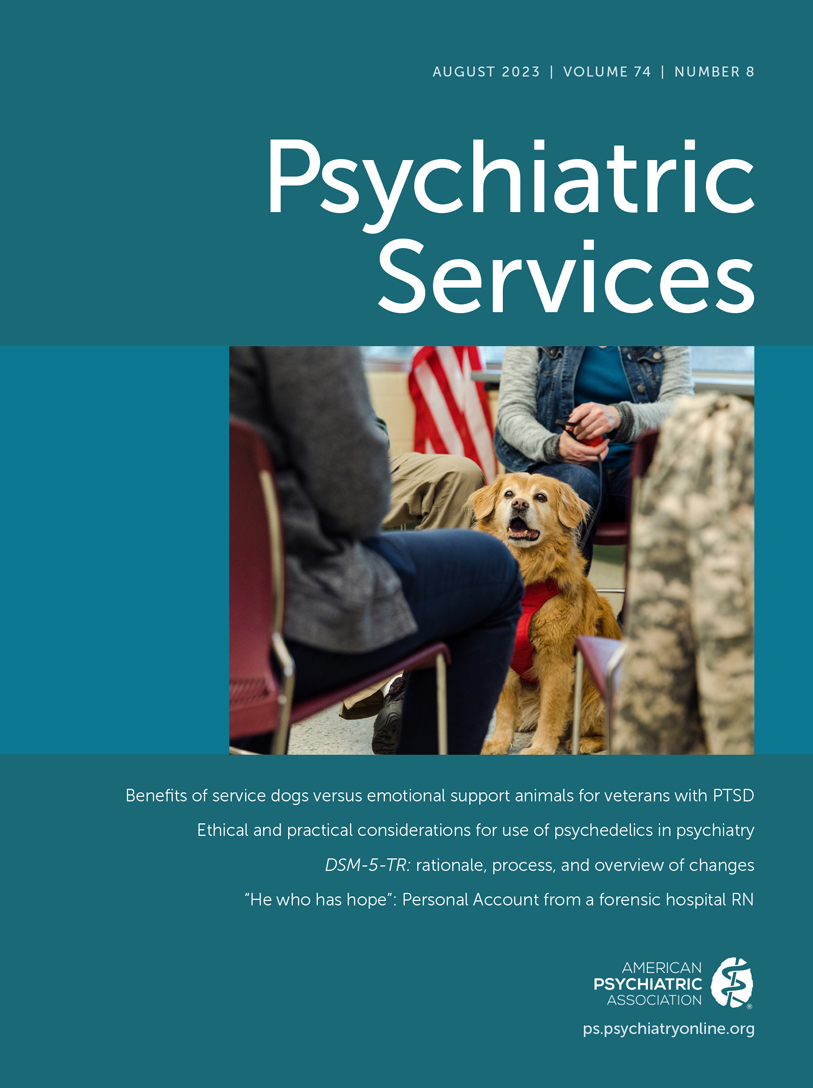Fulfilling the Goals of 988 Through Crisis Stabilization Care
Abstract
Recent implementation of the nationwide 988 Suicide and Crisis Lifeline has expanded telephone-based mental health crisis services and created a unified framework for crisis care in the United States. However, the infrastructure for the final step of the crisis continuum—an appropriate mental health service for persons in crisis to receive the care they need—is fragmented, unevenly distributed, underfunded, and understudied. Given the few options for individuals in crisis, most often inpatient psychiatric hospitals are the default option. In this Open Forum, the authors describe the scope of the problem and propose how clinicians, policy makers, and researchers can improve the availability of evidence-based disposition options for individuals in crisis.



